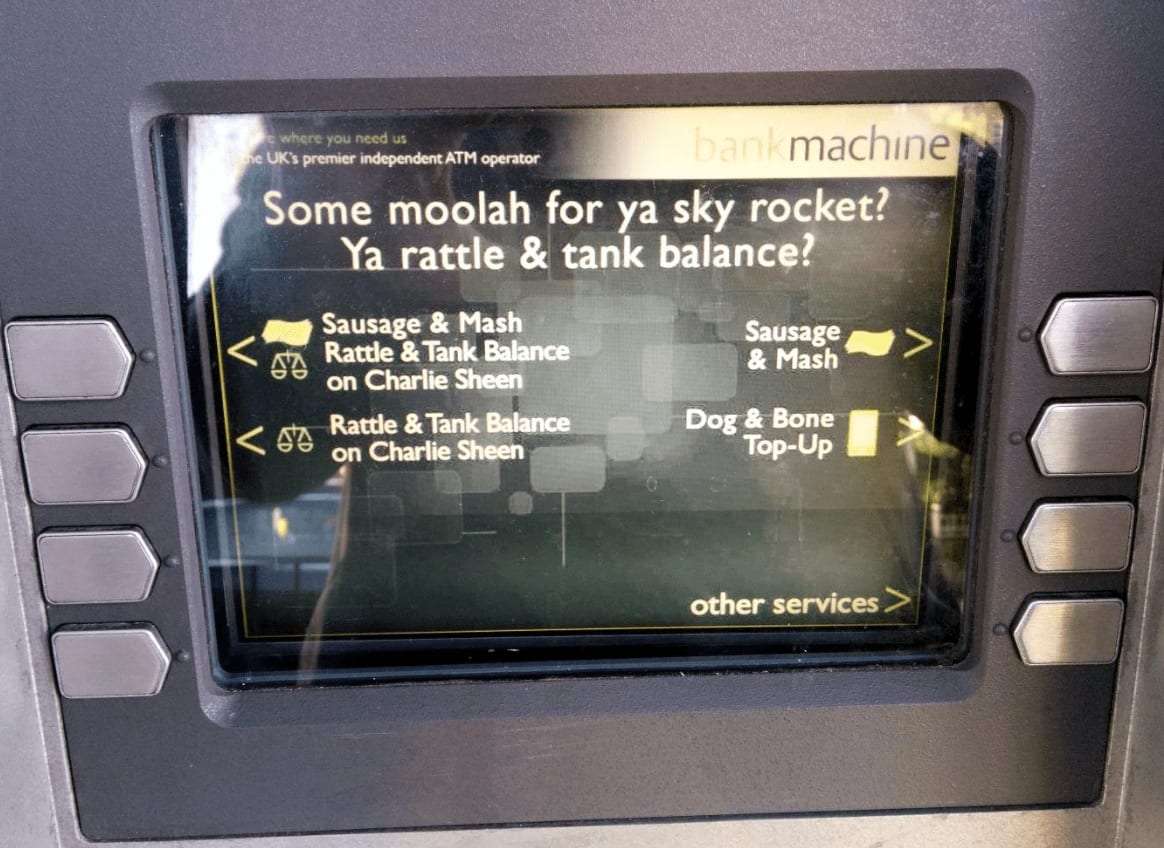Have a gander: What ‘The Age’ thinks you should know about Aussie slang
Musgrave
What do we as a group consider to be Australian slang? One way to answer this question is by collecting data in a survey (and we’re doing that). Another possibility is to find contexts where this knowledge is made explicit.
We’re fortunate to have such a data source easily available – The Age newspaper runs a daily quiz on its puzzles page, and questions about slang appear occasionally.
We’ve taken a sample from April 2006 until March 2021 that contains 109 such questions (that’s about one slang question every six weeks).
Questions about Australian slang
Of those 109 questions, 26 explicitly mention “Australian slang”, and another two mention “Australian rhyming slang”.
However, questions about three expressions are repeated – furphy and spit the dummy each occur four times, and daks occurs twice.
This means that there are 19 expressions identified as Australian slang, plus the two rhyming slang expressions. (Actually, one of the 19 – cheese and kisses – is rhyming slang, but not identified as such.)
The full list of explicitly identified Australian expressions is:
-
bogan
-
cheese and kisses
-
daks, strides
-
dead horse
-
drongo
-
dunny
-
furphy
-
gum sucker
-
have a gander
-
illywhacker
-
mandarin
-
mozzie
-
Noah’s Ark
-
pineapple
-
ratbag
-
sanger
-
shoot through like a Bondi tram
-
snag
-
sparky
-
spit the dummy
-
thunderbox
Even in this list, there’s at least one item whose Australianness is dubious – thunderbox may have originated in the UK before 1788.
The Oxford English Dictionary, for once, isn’t very helpful, as its earliest citation is from 1939, but this image below is captioned “The Thunderbox privies at Llanerchaeron, an C18th estate near Aberaeron” in its source.

Other types of slang
Other kinds of slang are mentioned in the questions, some geographically specific (US, British), some associated with particular groups (military, nautical, cowboy, prison, sporting), and other kinds of classification (1950s, internet).
The newspaper reader is expected to know at least some of these expressions as part of their knowledge of Australian English.
From this point of view, it’s interesting that some older expressions generally considered to be quintessentially Australian, such as strewth, fair dinkum and cobber, aren’t present.
There are also several Australian expressions that occur in these questions but aren’t identified as such: rat coffin, widgie, sluggos, and Wilcannia shower.
On to the rhyming slang
My colleagues Howie Manns and Kate Burridge have recently written about the future of rhyming slang, and rhyming slang is well-represented in these quizzes, with 25 questions covering 19 expressions.
As mentioned, in two cases these questions explicitly refer to Australian rhyming slang, but there are also two questions about dead horse that refer to it as just rhyming slang.
Read more: Look, mate, I just wanna know the top Aussie slang term
In general, boundaries within the rhyming slang category aren’t clear-cut. Aside from the two expressions named as Australian, there are three expressions identified as Cockney rhyming slang, as well as 15 expressions termed plain rhyming slang.
But of those 15, one is described as Cockney on another occasion (china plate), dead horse appears here as well as being explicitly Australian elsewhere, and there are expressions that are definitely Australian but not named as such (Harold Holt, dog’s eye).

The overall picture here is that there are slang expressions we know as speakers of Australian English and that can be explicitly identified as such, but that the explicitly identified items by no means exhaust our knowledge.
In some cases, such as Harold Holt or Wilcannia shower, perhaps there’s an assumption that such expressions identify themselves, but this isn’t the case for an expression such as widgie.
And, of course, we have to ask to what extent the puzzle-setter is looking to bamboozle the reader – should we know all of these expressions, or are we meant to fail on some questions?
About the Authors
-
Simon musgrave
Lecturer, Linguistics, Faculty of Arts
Simon’s research is mainly focused on the intersection of linguistics and digital humanities. His PhD thesis looked at aspects of the syntax of Indonesian (Bahasa Indonesia), from the viewpoint of lexical-functional grammar. His recent projects include an investigation of knowledge of endangered languages among the Sudanese community in Melbourne, and projects looking at issues in medical communication in intercultural settings.
Other stories you might like
-
What’s that you're (not) saying? Filling in the blanks of elliptical slang
The beauty of language isn’t always in the words a phrase contains, but in the words it doesn’t.
-
Best thing about Aussie slang? Calling a clueless seppo a galah
One of the special things about Australian words is that they’re near and dear to who we are – and we take pleasure in confusing other people about them.
-
The great Australian adjective
If you were being polite, you’d call it “colourful”. It was once also regarded as “disgusting” and an oath, but really, it’s just a bloody great word.